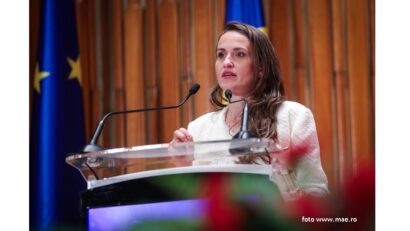Europe’s new walls
Relations between Romania and Hungary tighten as Hungary decides to extend its fence along the Serbian border towards Romania to stem the flow of migrants and Romanias prime minister Victor Ponta criticises Hungarys handling of the refugee crisis.

România Internațional, 16.09.2015, 13:34
Faced with a
massive influx of refugees from the Middle East and North Africa, Hungary plans
to extend its fence along the Serbian border eastwards towards neighbouring
Romania. This is how the Hungarian foreign minister Peter Szijjarto explained
his country’s decision:
We have made the decision to start
preparatory works for the construction of a fence starting from the
Hungarian-Serbian-Romanian border at a reasonable length should migration
pressure shift in the direction of Romania. Given our good relations and in
keeping with diplomatic norms, we have informed the Romanian side, more
precisely the state secretary for European integration, of our intentions.
The foreign ministry in Bucharest, however,
has described as politically incorrect Hungary’s plans to build a fence on the
common border between two European Union member states and strategic partners.
The ministry says these plans run counter to the European spirit, while prime
minister Victor Ponta says Budapest’s decision to build a fence along its
borders will not solve the problem and takes Hungary out of Europe. He also
said Hungary treats the refugees using clubs and serial numbers.
The Hungarian foreign minister harshly
criticised Ponta’s comments, describing them as extremist and false. For his
part, Ponta said he would not respond to the provocations made by some of the
representatives of the Hungarian government, but said, however, that the
behaviour of some of them is not in line with European Union values and is no
better than that of decision makers in Syria, Libya and other countries that
refugees are fleeing. The Hungarian foreign minister Peter Szijjarto
accused Victor Ponta of losing control
and offending Hungary with his irrational statements.
In the meantime, the refugee crisis deepens.
EU foreign ministers meeting in Brussels on Monday failed to reach an agreement
over the fair distribution of the 120,000 refugees and will meet again next
Tuesday in a new attempt to find consensus. Romania said it was ready to
receive more than the 1,705 people it initially agreed to take in, plus another
80 people from outside the European Union. Alongside nine other EU states,
Romania is opposed to the introduction of obligatory refugee quotas.






























